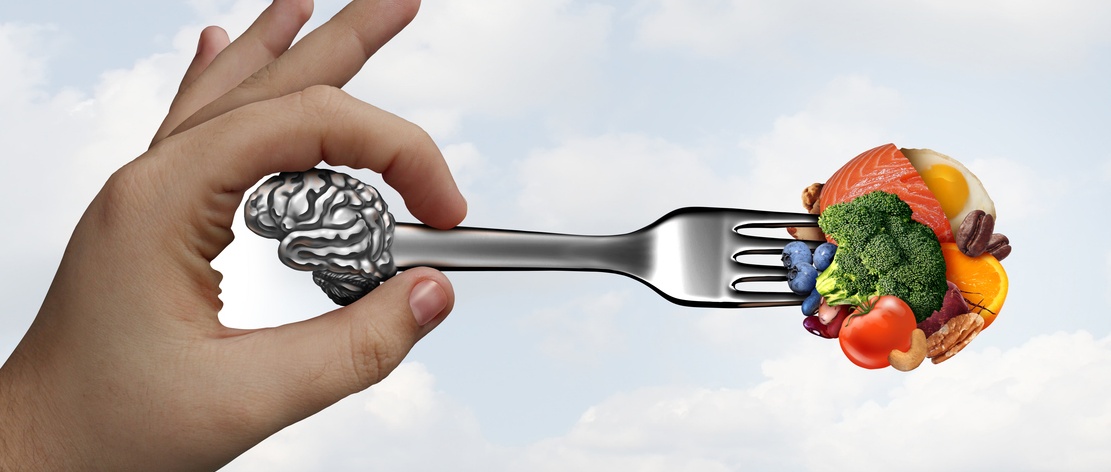
Probiotics for IBS: do they work?
Peer reviewed by Dr Sarah Jarvis MBE, FRCGPLast updated by Amberley DavisLast updated 14 Feb 2024
Meets Patient’s editorial guidelines
- DownloadDownload
- Share
- Language
- Discussion
- Audio Version
From your work life to your sex life, having irritable bowel syndrome (IBS) can cause disruption and inconvenience. Can probiotics for IBS help to reduce these symptoms, and which probiotic supplements can you trust?
In this article:
Video picks for Irritable bowel syndrome
Continue reading below
Irritable bowel syndrome
If irritable bowel syndrome (IBS) is affecting your quality of life then you're not alone. Symptoms linked to this long-term condition of the gut are thought to affect around one in five people in the UK at some stage in their lives1.
Certain foods, stress, infections, and oversensitivity to pain are all known triggers of IBS symptoms. If you have IBS, you may experience tummy cramps (abdominal pain), bloating, diarrhoea, or constipation on a regular basis.
If left unmanaged, these uncomfortable and inconvenient symptoms can interfere with everyday life, including your work life and your personal relationships.
While experts are not sure of the exact cause of IBS, they do know that it's a problem with the way your gut (also called your bowel) works. Dr Nirusa Kumaran, GP and lifestyle and functional medicine specialist, explains:
"Research has identified three potential reasons for the onset and ongoing symptoms of IBS:"
An imbalance in the gut microbiome - sometimes called gut flora, this refers to the microorganisms living in your digestive system.
Changes in the gut-brain connection - the two-way connection between the gut and the brain via nerve endings, hormones and chemical signals.
Increased intestinal permeability - your intestinal walls allowing harmful substances to enter.
Are probiotics good for IBS?
Back to contentsThis is why methods that improve your gut health are being explored for IBS management. While there is no cure for IBS, probiotics for IBS may help ease and reduce symptom flare-ups.
Probiotics for IBS can be explored in addition to any medicines, dietary changes, and lifestyle changes recommended by your doctor.
Probiotics for IBS - the 'good' bacteria
Probiotic bacteria are tiny living organisms known as microbes that live in your gut and help to keep it healthy.
Having a large enough quantity can assist your digestive system by:
Strengthening the intestinal barrier that keeps harmful organisms out.
Supporting your immune system.
Lessening inflammation in your gut.
Reducing occurrences of diarrhoea.
You can boost your probiotic levels by:
Eating certain fermented foods, or foods where probiotics have been added.
Taking probiotic supplements and medicines - in the form of tablets, sachets, or liquids.
"While they may not work for everyone, several studies have demonstrated the positive influence of probiotics on reducing the symptoms of IBS," says Kumaran. "So it is definitely worth considering probiotics for IBS."
A 2020 review of 28 studies involving 3,606 people found that probiotics for IBS could be beneficial for overall symptoms2. In a 2015 review involving 1,793 people, results showed that probiotics could reduce instances of tummy cramps, bloating, and wind3.
Not all available probiotic supplements undergo rigorous testing through clinical trials, but there are ways to spot the high-quality products on the market. This is covered in the next section.
Continue reading below
What is the best probiotic to take for IBS?
Back to contentsThere is evidence that different strains of probiotics for IBS may be best suited to treat certain types of IBS. The research in this area tends to be quite mixed, and it can be a case of trial and error to find the probiotic that works best for you.
Probiotic strains that have been proven to alleviate IBS symptoms
The two main probiotic groups for IBS are Lactobacillus and Bifidobacterium:
Bifidobacterium - includes strains such as Bifidobacterium bifidum MIMBb75, which has been shown to significantly improve IBS symptoms of tummy cramps, bloating, and diarrhoea4.
Lactobacillus - includes strains such as Lactobacillus acidophilus NCFM, which has been found to reduce tummy cramps5.
Shopping for quality
If you choose to shop around for probiotic supplements yourself, it's important to select a high-quality product that has been scientifically tested in clinical trials. There are a few things you should consider:
The colony-forming units (CFU) count - The National Institutes of Health (NIH)recommend checking if a probiotic supplement label lists the CFU count6. This is the amount of live 'good' bacteria that the probiotic supplement contains. Most probiotics contain at least 1-10 billion CFU per dose.
Composition - Check that a product contains a probiotic strain that has been specifically studied for its treatment of IBS. See the main probiotic group names above.
Randomised controlled trials. You can contact the probiotic manufacturer for specific information on research they have done in IBS. The most reliable evidence comes from trials that are:
Placebo-controlled - the patients are randomly assigned to receive the probiotic or a dummy version.
Double-blind - neither the doctor nor the patient knows if they are taking probiotic or placebo.
Third-party testing - look for a probiotic supplement that has undergone third-party testing by an independent laboratory. This is a good indication of a high-quality product.
How long should probiotics be taken for IBS?
Back to contentsIf you start a course of probiotics for IBS, don't expect to see results straightaway. One 2019 review found it took an average of eight weeks or more for people with IBS to notice the health benefits7.
The National Institute for Health and Care Excellence (NICE) recommends that people choosing to use probiotics for IBS should take the same brand for at least four weeks at the dose recommended by the manufacturer8.
Taking probiotics for IBS over an extended period of time is thought to be safe. There is no evidence that probiotics for IBS can cause any harm in the long term, although more research is needed on the effects of long-term use.
Continue reading below
IBS and your diet
Back to contentsIBS can be different for each person, both in terms of severity and in what can trigger symptoms. If particular foods cause your symptoms to worsen, it's important to look at your diet alongside any probiotic supplements you choose to take.
For some, following a healthy diet which includes lots of fruit, vegetables, and plenty of water is enough to make a big difference. Others may need to be more strict with what they eat. If you're unsure if certain foods you eat are aggravating your condition, keep a food symptom diary and note down when symptoms occur after you eat certain foods.
Probiotic-rich foods
As well as various supplement forms, you can also boost your probiotic intake through your diet. Certain fermented foods are naturally rich in probiotics because they are created through the growth of live microbial cultures.
Examples include:
Live yoghurt.
Kombucha (a fermented tea).
Kefir (fermented milk).
Kimchi (Korean pickled cabbage).
There are also a range of unfermented foods that have probiotics added to them. NIH cautions that whether these foods can truly count as probiotics depends on6:
The number of microorganisms they contain;
Whether the strains they contain have health benefits; and
Whether they survive digestion.
Examples include certain:
Cereals and cereal bars.
Milks.
Juices.
Low FODMAP
For up to 70% of people with IBS, eating certain foods can make their symptoms worse9. If this is you, being careful about what you eat and getting to know your food triggers could be key to making life with IBS much easier.
Of course, avoiding all your food triggers all of the time is easier said than done. You can also take probiotics to help your gut digest these foods. "It is thought that greater numbers of beneficial probiotic bacteria will help break down the high-FODMAP foods that often trigger IBS," explains Kumaran.
FODMAP stands for Fermentable Oligosaccharides, Disaccharides, Monosaccharides, and Polyols. Put simply, these are foods that cause your gut bacteria to produce a lot of gas when they're digested. It's this gas that often causes the typical and uncomfortable IBS symptoms of pain, wind, and bloating.
One 2016 study concluded that up to 86% of people with IBS found that following a low- FODMAP diet significantly improved their IBS symptoms10. However, a strict low-FODMAP diet can be very restrictive, so you should have guidance from a dietitian.
Further reading
Back to contentsPatient picks for Irritable bowel syndrome

Digestive health
How IBS affects sex, dating and relationships
If you're dealing with irritable bowel syndrome (IBS), the symptoms can be challenging to say the least. What is less often discussed is how the condition can impinge on other aspects of your life. This is especially the case when it comes to romantic relationships.
by Abi Millar

Digestive health
What is the link between IBS and anxiety?
Irritable bowel syndrome (IBS) can cause a combination of tummy cramps, diarrhoea, bloating and constipation. It's a long-term health condition that can affect your quality of life. Although changing your diet and taking certain medicines can help, poor mental health and IBS symptoms can mutually aggravate each other.
by Victoria Raw
Continue reading below
Article history
The information on this page is peer reviewed by qualified clinicians.
Next review due: 14 Feb 2027
14 Feb 2024 | Latest version
12 Apr 2022 | Originally published
Authored by:
Amberley Davis

Ask, share, connect.
Browse discussions, ask questions, and share experiences across hundreds of health topics.

Feeling unwell?
Assess your symptoms online for free
Sign up to the Patient newsletter
Your weekly dose of clear, trustworthy health advice - written to help you feel informed, confident and in control.
By subscribing you accept our Privacy Policy. You can unsubscribe at any time. We never sell your data.